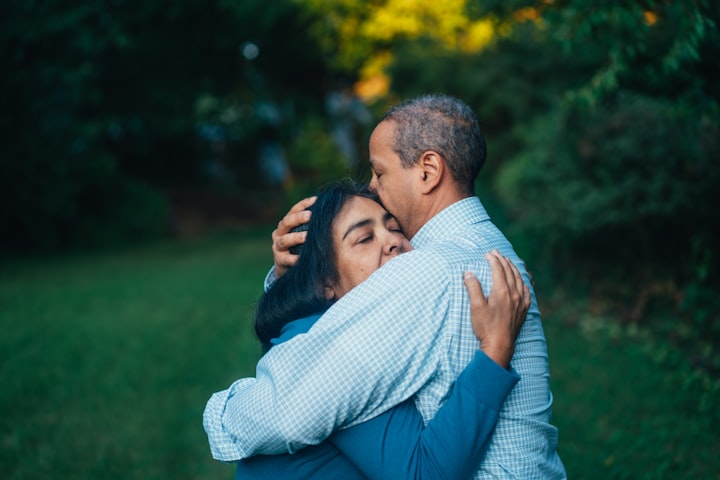
Social media. What immediately springs to mind? Is it that place you spend endless hours, lost in mindless scrolls of the same old memes and same old status updates? Perhaps it's a place of hope, a place that was able to facilitate much-needed conversations about race and feminism and intersectionality. But that utopia seems a little further and further away every time Trump tweets.
The fact is that social media has irrevocably changed the way in which we communicate and consume content.
It's hard to imagine a time before scrolling social media took up 1/7th of our waking lives - as reported by the Global Digital Report 2019 by We Are Social and Hootsuite. Increasingly, our lives are lived for social—we do it for the 'gram or the likes or because we think we might be able to become influencers.
On the flip side, the content we consume is increasingly shit, to put it simply. The 2016 election was a wake-up call for many who just realised the way in which Facebook's algorithm can dictate the news they see and the opinions they assume are universal. The idiocy of Mark Zuckerberg's testimony to the Senate as he tried to explain Facebook ads exposed a grave misunderstanding of how brands can influence and push messages to highly-targeted groups.
There is growing frustration with the way in which social has perpetuated trolls and negativity—and yet a resignation that this is just the world we live in.
As common as it is to complain about the weather, we complain about social media and the fake or negative shit we are exposed to each day. And yet we continue to expose ourselves.
Now I'm not saying that that is the end. Turn off your phones, throw them into the ocean, and enjoy a disconnected life without all that bullshit. I'm not naive. Heck, as a social media manager myself, I know this would not be possible.
But there are definite ways to be more mindful about our social media use. In my last post on Vocal, I wrote about how we digitally detox because as simple as it is to want to take a break, without being prepared for it and mindfully navigating a day or two offline, the benefits of taking some time offline get lost on us.
It doesn't mean there isn't plenty that we can do to make our social media use more mindful as well. If we are perpetuating the algorithms, the cycles, the negative content or even the content that is a little fake, who are we to complain?
It is easy to open our mouths against social media, but will we open up our feeds?
So I challenge you to think about how you use social media. The next time you find yourself questioning how you've lost another hour on the platform, the next time you roll your eyes at some influencer's post, the next time your heart sinks a little deeper when Trump tweets, take a moment to think and ask yourself these questions:
1. Does it spark joy?

Photo by Bench Accounting on Unsplash
Marie Kondo who you follow. Are you following a Kardashian because millions of other people do or because it generally sparks you joy? Get rid of the people who are making you feel shitty or bringing in unnecessary negativity into your life. You don't need to see it and if our feeds are going to be that highly curated thanks to Zuckerberg, we may as well help him along.
But as you're doing that, take a moment to recognise those things that are bringing you joy. Are you looking at the skinny Instagram models, thinking it brings you joy but rather bombarding yourself with self-esteem issues? Be wary of the things that you might be seeing that could have a negative effect on the way you see the world.
Keep your joy pure, and your feeds as well.
2. Why am I posting?

Photo by Jakob Owens on Unsplash
A lot of the noise on social media comes from people thinking they just need to post something. Brands are particularly at fault here because they feel like they need to be on every platform, posting every day. If your plan is to hack the platform or sell a product, sure, it will probably work.
But if you are trying to use social media just that little bit better, think before you post about why? Do you have something particular to say? Are you just jumping onto the hype? What is your personal connection or investment into actually posting?
This particularly happens when there is this bandwagon-effect to big news events. We all rush to retweet or share the posts when it seems like everyone is in on the joke or the trend that you are not. But rarely do we take the time to understand the issue and what our opinions might be.
Take the Jussie Smollett case. As tragic as it was to see a young man attacked, celebrities and users alike were quick to "stand by" Jussie on social media. However, as the case unravelled, it became evident how quickly people were to jump and share the idea that this was a horrible hate crime—rather than a very strange case of trying to be relevant. With the ease of a mere retweet, it becomes easier to just contribute to the noise rather than think about what it is that we're sharing.
We have to take responsibility for the things that we post or share. It's the only way that we might quieten down the false speculations and rumours and allow for good ol' journalistic integrity and fact-finding to shine through and deliver us the news.
3. Is this my authentic story?

The beauty of social media is that it gives a platform for many people to be able to share their story. Through social media, we've had the opportunity to hear unique and individual stories that mainstream media had oftentimes sidelined. The strength of those marginalised stories—particularly when banded together—have allowed for movements like #MeToo or #BlackLivesMatter to cut through all the noise.
There is great power in sharing your own story and being able to real and authentic could do wonders for both yourself and your followers. You never know who might recognise themselves in your struggles or be inspired by your strength to persevere.
As we are recognised more and more for the multi-faceted identities that we possess, it is comforting to find those unique mixes in others, even if it is just online. We are enabled to connect based on similar values or ideas, rather than the convenience of who we meet at school or work. So don't be afraid to share your story with others.
But make sure it's real. It's easy to only focus on the great and picture perfect—particularly on visual platforms like Instagram.
Share the struggles, share the doubt, share the ugly, share the pain.
That is your story–the good and the bad. So if you're sharing on social, share it all.

Photo by Denys Nevozhai on Unsplash
There is plenty of work to do 'til we might get to a place of a clean social media that effectively digitises the marketplace of ideas that one (ie. I) might hope for. Brands have a role, influencers have an increasingly large role, and social media platforms themselves could all be doing more to cut out the real from fake, negative noise from positive content, love from hate. But small steps can start to make a bigger difference and if we start from ourselves, maybe, just maybe, we could turn the social media landscape into a better place.
About the Creator
Tiff Ng
Social storyteller, travelling the world with a heart still in Aus.






Comments
There are no comments for this story
Be the first to respond and start the conversation.